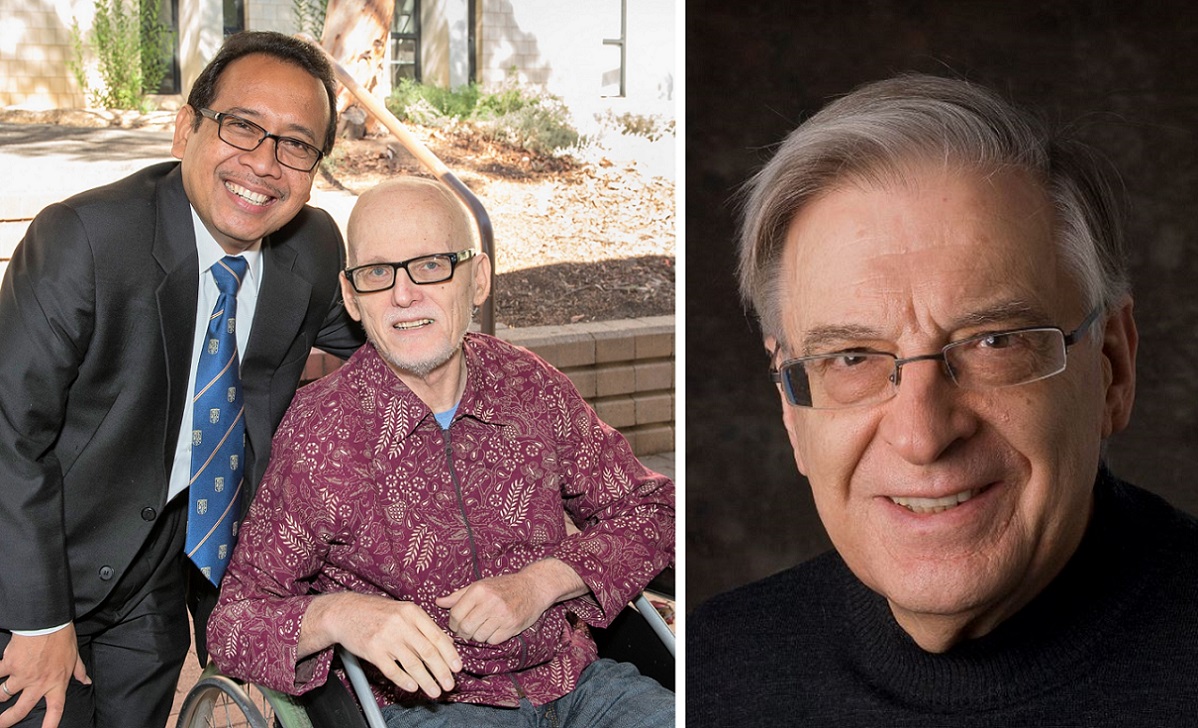
The Flinders community is deeply saddened by the recent passing of two distinguished academics and researchers who made huge contributions in their fields of expertise.
Indonesian politics expert helped shape influential policy-makers
International students, including Indonesian graduates, are paying tribute to former Flinders University academic Dr Jim Schiller who passed away this week after a long illness.
Dr Schiller was a pioneer in the study of local politics in Indonesia, working in the former Discipline of Asian Studies and Languages and School of Political and International Studies for more than 20 years.
Before retiring almost 10 years ago, Dr Schiller led international research projects – including two funded by the Australian Research Council – and supervised dozens of PhD, masters and honours students on topics related to Indonesian politics and Southeast Asian political economics. His work has become an important research reference for Indonesian political science scholars both in Indonesia and around the world.
Originally from Dayton in Ohio, Dr Schiller went on to study the dynamics of local politics in the Jepara district of Central Java during the time of authoritarian rule under former President Suharto’s New Order regime (1966-1998).
“The great legacy of his scholarship lies in his role as the supervisor of outstanding post-graduate students, many of whom became prominent intellectuals, scholars and policy-makers upon their return to Indonesia,” say colleagues Dr Priyambudi Sulistiyanto and Dr Rosslyn von der Borch.
“This group of Indonesian leaders was shaped by Jim’s rigorous supervision, underpinned by a deep knowledge of, and commitment to Indonesia.
“Their contribution in Indonesia, among others, has been leadership in the process of decentralisation and capacity-building in local government in post-Suharto democratic Indonesia.”
Outstanding students of Dr Schiller include Professor Pratikno, who is currently the Minister of State Secretariat in the Jokowi administration, Dr Hetifah who is a member of national parliament and Professor Syarif Hidayat from the Institute of Indonesian Sciences.
Described as a “true intellectual,” Dr Schiller is fondly remembered for his capacity to listen with interest and engage with colleagues across a broad range of research areas. He would always have a suggestion to make regarding something else to consider or another reference to investigate.
He is sorely missed by friends and by all the colleagues in social sciences who benefited from his prodigious knowledge and his generous and genuine interest in their work.
Dr Schiller was buried at the Al Khalil Mosque at Woodville, according to Islamic tradition. A memorial service will be held in the Oasis Common Room at Flinders University on Monday 1 October at 11am. A light lunch will follow.
Pathology leader a pioneer in asbestos disease research
South Australia’s medical community is commemorating the contribution of Flinders University Emeritus Professor Doug Henderson AO, an internationally recognised researcher in the field of asbestos-related diseases.
Professor Henderson passed away last week aged 76.
Professor Henderson was honoured in his Queen’s Birthday Order of Australia citation in 2005 for distinguished service to medicine, particularly anatomical pathology, and as a clinician and diagnostician, as well as academic and author in the field of asbestos-related diseases such as malignant mesothelioma.
Flinders University Professor Jonathan Craig, Vice President and Executive Dean of the College of Medicine and Public Health, paid tribute to Professor Henderson’s major contribution to education and research in his field.
“Professor Henderson was well known for his tireless efforts on behalf of those with asbestos-related lung disease,” Professor Craig says.
“Many in the Flinders community will remember Doug, in particular as anchor of the former Department of Anatomical Pathology for many years before his retirement.”
Long-time colleague, Flinders University Professor Kevin Forsyth, worked with Professor Henderson for many years researching lung immunology of infants.
“He was of tremendous assistance to me in my research work (and) his knowledge, particularly of lung pathology, was unrivalled,” says Professor Forsyth, Dean (People and Resources) at the College of Medicine and Public Health.
“His expertise was so clearly seen by all. He was always willing to assist in any way he could,” Professor Forsyth says.
As a surgical pathologist at Flinders Medical Centre, Professor Henderson’s expertise on diseases of the pleura and asbestos-related disorders led to his advising a range of international bodies, including the Asbestosis Committee convened by the College of American Pathologists and Pulmonary Pathology Society.
He also was one of four scientific advisers to the World Trade Organization for the dispute between Canada and the European Communities concerning the ban on importation of Canadian chrysotile asbestos into France.
At FMC, he also held the Directorship of Electron Microscopy and Head of the Anatomical Pathology from 1989 to 2005.
He co-authored or edited six books dealing with pleuro-pulmonary pathology and diagnostic electron microscopy, as well as 30 book chapters, more than 120 publications in peer-reviewed journals, and more than 130 presentations at local, national and international meetings and conferences.
He was the Chief Examiner in Anatomical Pathology for the Royal College of Pathologists of Australasia from 1994 to1999 and was later made a Distinguished Fellow of the Royal College of Pathologists of Australasia and in 2010 received a Distinguished Pathologist Medal of the Australasian Division of the International Academy of Pathology.
He is survived by his family and partner, Flinders University academic Associate Professor Sonja Klebe, who remains committed to extend the work to find effective treatments for asbestos-related diseases.

